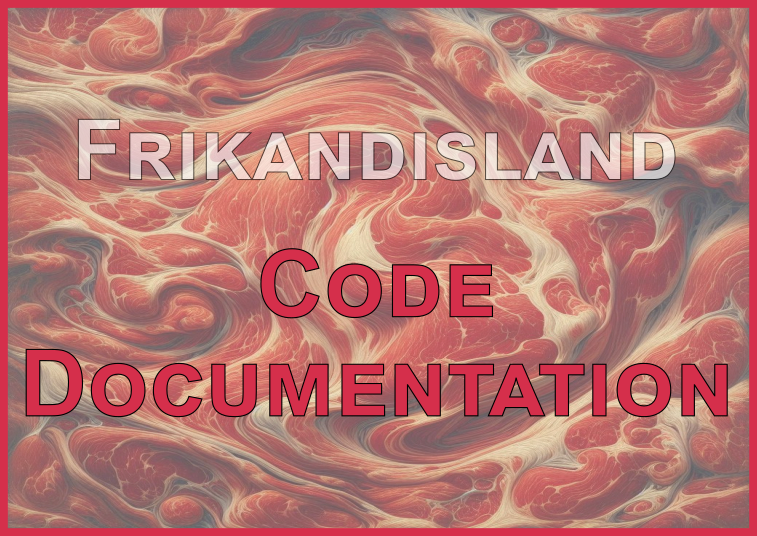Mangerie Online
[added on 16-03-2025]

[added on 16-03-2025]
[added on 14-10-2024]

Do you like COoodDe?! Well, you'll love the Frikandisland code documentation!
More documentation will be added as I code more parts of Frikandisland, the ultimate survival game.
[added on 05-05-2024]

Mangerie online: your one and only online digito-kaleidoscope. Revisit your fondest memories now!
Local version supports mobile, itch version supports full screen on desktop.
[updated on 08-02-2024]
Pretend to be an AI like Dall-e or Midjourney: can you draw faster than humans can type prompts?! Created drawings can be uploaded to a central database, where they can be viewed by everyone.
Update (08/02/24): interface has been updated & added a autosave feature to protect against crashes/accidental reloads!
[read more]"Prove you're a Robot" provides similar drawing mechanics to the Planetegem Painter, but this time with a clear objective for the player: a prompt is requested from the Prompt Generator project. The player then needs to try and draw what was prompted.
Important for this game was that there needed to be a community aspect: a combination of prompt and drawing needed to be saved on the server, so players would be able to share their art with each other. Other than that, it was mostly just finetuning of the methods used in the Planetegem Painter and the Prompt Generator.
[view on github][updated on 22-09-2023]

Interesting fact: when a politician looks into the mirror, his reflection is not mirrored. Political Memory is back, now with 12 politicians and 7 random events!
A desktop-only version of the game is available on itch, which will be updated most frequently. A mobile version can be played locally. This is the legacy edition, not containing random events.
[read more]
I had wanted to revisit Political Memory for a while to add some more complexity to its gameplay in the form of random events.
I also wanted the game to feel more like a stand-alone app, instead of the rather basic webpage it was.
Finally, game progress needed to be made persistent by saving it in browser local storage.
Doing this and learning React at the same time seemed like a win/win.
The biggest challenge here was the data being passed around between React components. As React works asynchronously, it was difficult to predict if the data inside components was up-to-date (for example if 2 different components were to trigger a render of the parent component at the same time).
[view on github][added on 06-01-2023]
Navigate through a vast conspiracy maze. All mazes have been procedurally generated and are filled with joy! Unfortunately, this one is not supported for mobile.
This game has been built entirely in HTML5 canvas. All coding is custom: no libraries were used.
[read more]
I had several ambitions for this game:
(1) I wanted a game where you had to navigate procedurally generated mazes
(2) with pixel perfect collision detection
(3) and gameplay changing from level to level (i.e. top-down navigation, into a platformer, into a gravity tumbler).
Having practically no coding experience at the time, this was a major challenge.